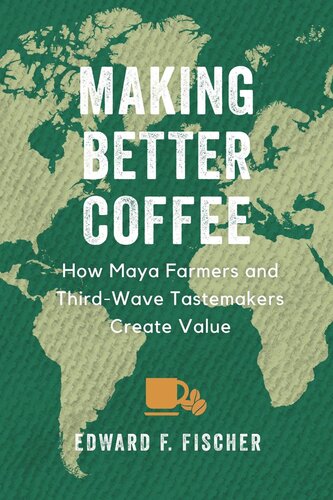

Most ebook files are in PDF format, so you can easily read them using various software such as Foxit Reader or directly on the Google Chrome browser.
Some ebook files are released by publishers in other formats such as .awz, .mobi, .epub, .fb2, etc. You may need to install specific software to read these formats on mobile/PC, such as Calibre.
Please read the tutorial at this link: https://ebookbell.com/faq
We offer FREE conversion to the popular formats you request; however, this may take some time. Therefore, right after payment, please email us, and we will try to provide the service as quickly as possible.
For some exceptional file formats or broken links (if any), please refrain from opening any disputes. Instead, email us first, and we will try to assist within a maximum of 6 hours.
EbookBell Team

0.0
0 reviewsAn anthropologist uncovers how "great coffee" depends not just on taste, but also on a complex system of values worked out among farmers, roasters, and consumers.
What justifies the steep prices commanded by small-batch, high-end Third Wave coffees? Making Better Coffee explores this question, looking at highland coffee farmers in Guatemala and their relationship to the trends that dictate what makes "great coffee." Traders stress material conditions of terroir and botany, but just as important are the social, moral, and political values that farmers, roasters, and consumers attach to the beans.
In the late nineteenth century, Maya farmers were forced to work on the large plantations that colonized their ancestral lands. The international coffee market shifted in the 1990s, creating demand for high-altitude varietals—plants suited to the mountains where the Maya had been displaced. Edward F. Fisher connects the quest for quality among U.S. tastemakers to the lives and desires of Maya producers, showing how profits are made by artfully combining coffee's material and symbolic attributes. The result is a complex story of terroir and taste, quality and craft, justice and necessity, worth and value.